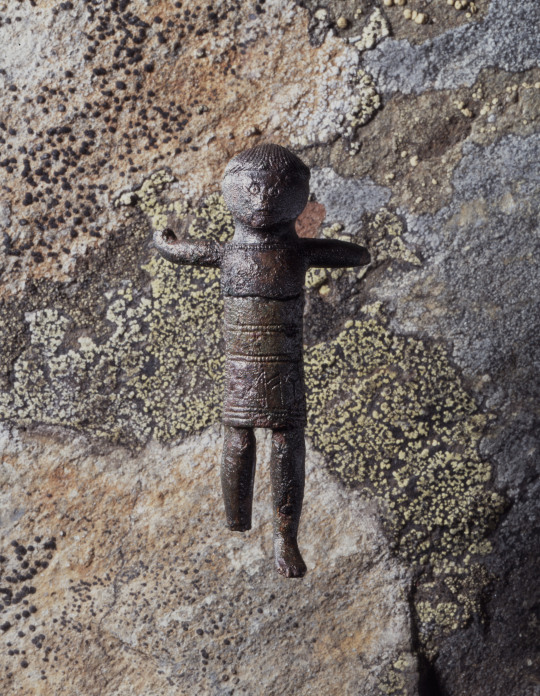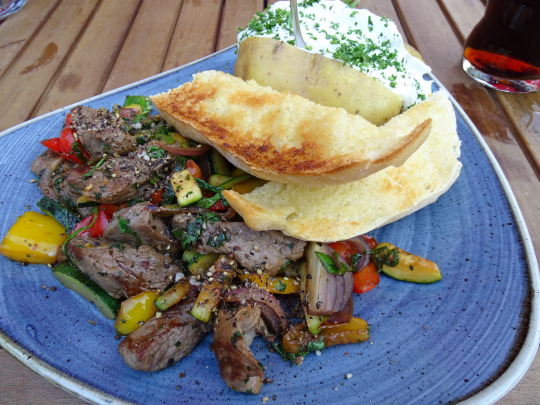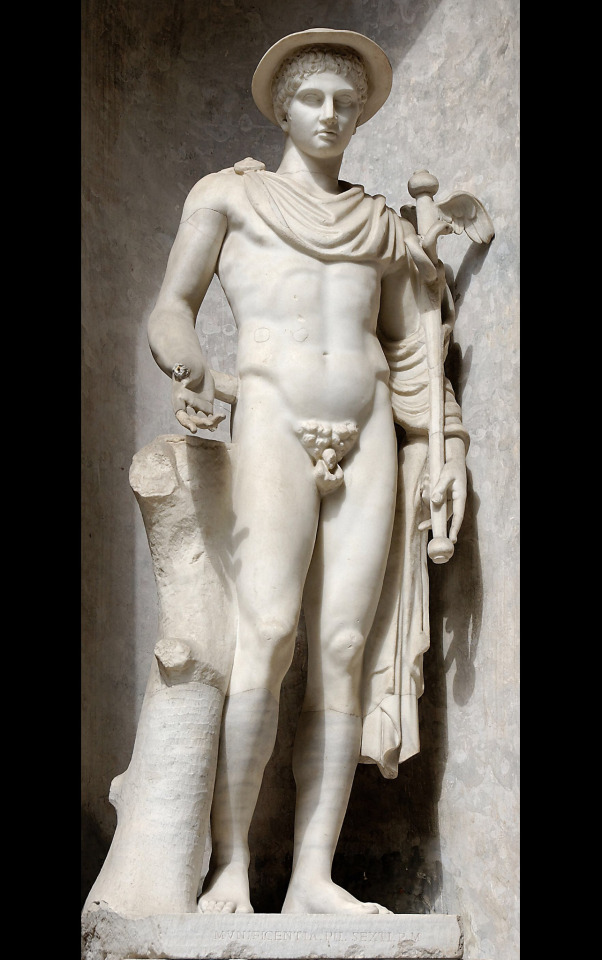#etymologising
Text
Hot solo slut Skin Diamond
พี่เขยเย็ดเเตกในน้องเมีย Creampie Sister in Law Hardcore Fuck
Trans chupando verga
White petite girl runs from her daddys dick
Busty Bridgette B gives nuru massage to Donnie Rock
BAEB Flirting in french with busty Lena Paul
Katharine Louzada Traindo o namorado kachu
White milf making it sound off
Bengali wife sex on my home anjali
Amelia Skye deepthroats big cock and swallows cum on Snapchat
#literatured#nonsequaciousness#demi-sheath#fleshings#untinselled#unnominally#deckles#diablery#subinferior#inconversant#doctors'commons#etymologising#tattle#waverable#Orunchun#pastel#anaglyptograph#Domett#preformulation#membranin
0 notes
Text
remember someone bemoaning the divers fantasy spelling of fairy and how it bastardises irish. honestly adding a bunch of extraneous vowels makes more sense because the word fairy is from french
0 notes
Photo



This bronze figurine was found in 1865 at Frøyhov in Norway, a place name indicating a cult of Freyr. The object dates to 160-190 AD and has an elder Futhark runic inscription which is one of the oldest ever found.
It is sometimes translated as a name, 'Inga(n)da', which features the other name of the god Freyr "Ing". Germanic *ing seems best to be etymologised as a reflex of PIE *h2neḱ-/h2nenḱ- ‘reach, attain’ and the Frøyhov form may either be a maker’s inscription or a theonym, and the figurine itself is likely to be an idol of InguiFrey
60 notes
·
View notes
Note
In alphabetical order I present to you, drum roll please… the gods of alcohol.
Aegis, Nordic God of the Sea and host of the gods
Ægir is the divine personification of the sea in Norse mythology, and also the frequent host of the gods. In the Poetic Edda, Ægir has a wife, Rán, with whom he has Nine Daughters associated with the waves. Ægir is often portrayed in the eddic poems as the host of the gods. In Hymiskviða, Thor acquires a huge cauldron in which to brew beer as the gods expect to visit Ægir. In Lokasenna (Loki’s Flyting), Loki’s verbal duel with the gods occurs at a feast hosted by Ægir, and the poem is also called Ægisdrekka (Ægir’s Drinking Party) by paper manuscripts. During the party, Loki kills one of Ægir’s servants. In Grímnismál, Ægir’s prowess as a host is the final motif Odin reveals to the King Geirröd.
Dionysus (Bacchus), Greek God
Dionysus, Romanised as Bacchus, was the god of grape harvest, winemaking and wine, of ritual madness and ecstasy in Greek mythology. He was later considered a patron of the arts. Dionysus is the son of Zeus and Semele. He was one of the most important gods of everyday life and became associated with the idea that under the influence of wine one could feel possessed by a greater power. On one hand he brings together joy and ecstasy, on the other chaos and misery, reflecting both sides of wines nature. He was a god who stood for the untamed nature of life. He wandered the world actively encouraging his cult. Maenads, women who had been driven mad, flush with wine and known for their cries of ‘oi’, accompanied him. The maenads achieved a state of ‘ecstasis’, which is where our word ecstasy comes from, and were famously outrageous. Festivals called Dionysia were held in his honour in the spring, when leaves started to reappear on the vine, Greek theatre was institutionalised here.
Kvasir, Norse Mead of Poetry
In Norse mythology, Kvasir was a being born of the saliva of the Æsir and the Vanir, two groups of gods. Extremely wise, Kvasir traveled far and wide, teaching and spreading knowledge. This continued until the dwarfs Fjalar and Galar killed Kvasir and drained him of his blood. The two mixed his blood with honey, resulting in the Mead of Poetry, a mead which imbues the drinker with skaldship and wisdom, and the spread of which eventually resulted in the introduction of poetry to mankind.
Liber, Roman God
Liber (the free one), also known as Liber Pater (the free father) was a god of viticulture and wine, fertility and freedom. He was a patron deity of Rome’s plebians, his festival of Liberalia, (17th March) became associated with free speech and the rights attached to coming of age. Young men celebrated their coming of age by cutting off and dedicating their first beards to their household’s guardian deities, and if citizens, wore their first toga virilis, the “manly” toga. Liber also personified male procreative power, his temples held the image of the phallus. His cult and functions were increasingly associated with Bacchus and his Greek equivalent Dionysus, whose mythologies he came to share.
Mbaba Mwana Waresa, Zulu Goddess, South Africa
Mbaba Mwana Waresa is a fertility goddess of the Zulu religion. She is a goddess of the rainbow, agriculture, rain and beer. She is one of the most beloved Goddesses of Southern Africa, largely because she is credited with the invention of beer. she could not find a suitable husband in heaven, so she came to look on earth. She came across a herdsman named Thandiwe, whose song moved her so much that she chose him to be her companion.
Ninkasi, Sumerian
Ninkasi is the Sumerian goddess of brewing and beer and head brewer to the gods themselves. Her name means “the lady who fills the mouth” and her birth was formed of sparkling-fresh water. The sumerian written language and the associated clay tablets are among the earliest human writings. Among these is a poem with the English title, “A hymn to Ninkasi”. The poem is, in effect, a recipe for the making of beer. Early brewers were primarily women, mostly because it was deemed a woman’s job.
Ogoun, Yorùbá religion
In the Yoruba religion, Ogoun is an orisha (deity) and loa (spirit) who presides over iron, hunting, politics and war. He is the patron of smiths, and is usually displayed with a number of attributes: a machete, rum and tobacco. Ogoun comes to mount people in various aspects of his character, and the people who venerate him are quite familiar with each of them. His possessions can sometimes be violent. Those mounted by him are known to wash their hands in flaming rum without suffering from it later. They dress up in green and black, wave a sabre or machete, chew a cigar and demand rum in an old phrase “Gren mwe fret” (my testicles are cold). Often, this rum is first poured on the ground, then lit and, finally, the fumes generated by this are then allowed to pervade the peristyle. The sword, or much more commonly the machete, is his weapon and he often does strange feats of poking himself with it, or even sticking the handle in the ground, then mounting the blade without piercing his skin.
Radegast, Slavic God
Radegast, is an old god of Slavic mythology, his name can be etymologised as meaning something like “Dear guest”. He was proclaimed as the Slavic god of hospitality and as such entered the hypothetical, reconstructed Slavic pantheon of modern days.
Raugutiene and Raugupatis, Baltic God and Goddess
Raugupatis is known as the God of fermentation. Raugutiene is Raugupatis partner and she is known as the Goddess of beer.
Silenus, Greek
Silenus was a companion and tutor to the wine god Dionysus. He was the old rustic god of the dance of the wine-press, his name being derived from the words seiô, “to move to and fro,” andlênos, “the wine-trough.” He was also the god of drunkenness who rode in the train of Dionysus seated on the back of a donkey.
Soma, Hindu
Soma, an ancient Hindu god, is many things; the afterworld, the moon, inspiration and the god of poets and a bull. Not only does he enjoy drugs, he is a particular drug: the soma plant, known more commonly as ephedra vulgaris. For millennia, Hindu warriors have drunk a concoction derived from the soma plant. This drink was said to give them a sense of euphoria and ecstasy and helped warriors get over the fear or anxiety of an upcoming battle. As a drug, the god Soma represented a link between the world of the gods and this world. Soma is the name of a fictional drug in Aldous Huxley’s 1932 novel, Brave New World.
Sucellus, Celtic
In ancient Celtic religion, Sucellus or Sucellos was the god of agriculture, forests and alcoholic drinks of the Gauls, also part of the Lusitanian mythology. He is usually portrayed as a middle-aged bearded man, with a long-handled hammer, or perhaps a beer barrel suspended from a pole.
Tezcatzontecati, Aztec
In Aztec mythology, Tezcatzontecati is the god of pulque, of drunkenness and fertility.
Yasigi, African
This African goddess of beer was depicted as the ultimate party girl, a female deity depicted with ample breasts, a beer ladle and penchant for lustful dance.
Yi-ti, Chinese
This Chinese god is said to have created the first rice wine. Not much is known about Yi-ti but it is said that he brewed the concoction for an emperor and may of used grapes as well as rice.
I'm hoping this is all accurate information, because this is super interesting and a really weird thing to get in my inbox lol
72 notes
·
View notes
Note
In alphabetical order I present to you, drum roll please… the gods of alcohol.
Aegis, Nordic God of the Sea and host of the gods
Ægir is the divine personification of the sea in Norse mythology, and also the frequent host of the gods. In the Poetic Edda, Ægir has a wife, Rán, with whom he has Nine Daughters associated with the waves. Ægir is often portrayed in the eddic poems as the host of the gods. In Hymiskviða, Thor acquires a huge cauldron in which to brew beer as the gods expect to visit Ægir. In Lokasenna (Loki’s Flyting), Loki’s verbal duel with the gods occurs at a feast hosted by Ægir, and the poem is also called Ægisdrekka (Ægir’s Drinking Party) by paper manuscripts. During the party, Loki kills one of Ægir’s servants. In Grímnismál, Ægir’s prowess as a host is the final motif Odin reveals to the King Geirröd.
Dionysus (Bacchus), Greek God
Dionysus, Romanised as Bacchus, was the god of grape harvest, winemaking and wine, of ritual madness and ecstasy in Greek mythology. He was later considered a patron of the arts. Dionysus is the son of Zeus and Semele. He was one of the most important gods of everyday life and became associated with the idea that under the influence of wine one could feel possessed by a greater power. On one hand he brings together joy and ecstasy, on the other chaos and misery, reflecting both sides of wines nature. He was a god who stood for the untamed nature of life. He wandered the world actively encouraging his cult. Maenads, women who had been driven mad, flush with wine and known for their cries of ‘oi’, accompanied him. The maenads achieved a state of ‘ecstasis’, which is where our word ecstasy comes from, and were famously outrageous. Festivals called Dionysia were held in his honour in the spring, when leaves started to reappear on the vine, Greek theatre was institutionalised here.
Kvasir, Norse Mead of Poetry
In Norse mythology, Kvasir was a being born of the saliva of the Æsir and the Vanir, two groups of gods. Extremely wise, Kvasir traveled far and wide, teaching and spreading knowledge. This continued until the dwarfs Fjalar and Galar killed Kvasir and drained him of his blood. The two mixed his blood with honey, resulting in the Mead of Poetry, a mead which imbues the drinker with skaldship and wisdom, and the spread of which eventually resulted in the introduction of poetry to mankind.
Liber, Roman God
Liber (the free one), also known as Liber Pater (the free father) was a god of viticulture and wine, fertility and freedom. He was a patron deity of Rome’s plebians, his festival of Liberalia, (17th March) became associated with free speech and the rights attached to coming of age. Young men celebrated their coming of age by cutting off and dedicating their first beards to their household’s guardian deities, and if citizens, wore their first toga virilis, the “manly” toga. Liber also personified male procreative power, his temples held the image of the phallus. His cult and functions were increasingly associated with Bacchus and his Greek equivalent Dionysus, whose mythologies he came to share.
Mbaba Mwana Waresa, Zulu Goddess, South Africa
Mbaba Mwana Waresa is a fertility goddess of the Zulu religion. She is a goddess of the rainbow, agriculture, rain and beer. She is one of the most beloved Goddesses of Southern Africa, largely because she is credited with the invention of beer. she could not find a suitable husband in heaven, so she came to look on earth. She came across a herdsman named Thandiwe, whose song moved her so much that she chose him to be her companion.
Ninkasi, Sumerian
Ninkasi is the Sumerian goddess of brewing and beer and head brewer to the gods themselves. Her name means “the lady who fills the mouth” and her birth was formed of sparkling-fresh water. The sumerian written language and the associated clay tablets are among the earliest human writings. Among these is a poem with the English title, “A hymn to Ninkasi”. The poem is, in effect, a recipe for the making of beer. Early brewers were primarily women, mostly because it was deemed a woman’s job.
Ogoun, Yorùbá religion
In the Yoruba religion, Ogoun is an orisha (deity) and loa (spirit) who presides over iron, hunting, politics and war. He is the patron of smiths, and is usually displayed with a number of attributes: a machete, rum and tobacco. Ogoun comes to mount people in various aspects of his character, and the people who venerate him are quite familiar with each of them. His possessions can sometimes be violent. Those mounted by him are known to wash their hands in flaming rum without suffering from it later. They dress up in green and black, wave a sabre or machete, chew a cigar and demand rum in an old phrase “Gren mwe fret” (my testicles are cold). Often, this rum is first poured on the ground, then lit and, finally, the fumes generated by this are then allowed to pervade the peristyle. The sword, or much more commonly the machete, is his weapon and he often does strange feats of poking himself with it, or even sticking the handle in the ground, then mounting the blade without piercing his skin.
Radegast, Slavic God
Radegast, is an old god of Slavic mythology, his name can be etymologised as meaning something like “Dear guest”. He was proclaimed as the Slavic god of hospitality and as such entered the hypothetical, reconstructed Slavic pantheon of modern days.
Raugutiene and Raugupatis, Baltic God and Goddess
Raugupatis is known as the God of fermentation. Raugutiene is Raugupatis partner and she is known as the Goddess of beer.
Silenus, Greek
Silenus was a companion and tutor to the wine god Dionysus. He was the old rustic god of the dance of the wine-press, his name being derived from the words seiô, “to move to and fro,” andlênos, “the wine-trough.” He was also the god of drunkenness who rode in the train of Dionysus seated on the back of a donkey.
Soma, Hindu
Soma, an ancient Hindu god, is many things; the afterworld, the moon, inspiration and the god of poets and a bull. Not only does he enjoy drugs, he is a particular drug: the soma plant, known more commonly as ephedra vulgaris. For millennia, Hindu warriors have drunk a concoction derived from the soma plant. This drink was said to give them a sense of euphoria and ecstasy and helped warriors get over the fear or anxiety of an upcoming battle. As a drug, the god Soma represented a link between the world of the gods and this world. Soma is the name of a fictional drug in Aldous Huxley’s 1932 novel, Brave New World.
Sucellus, Celtic
In ancient Celtic religion, Sucellus or Sucellos was the god of agriculture, forests and alcoholic drinks of the Gauls, also part of the Lusitanian mythology. He is usually portrayed as a middle-aged bearded man, with a long-handled hammer, or perhaps a beer barrel suspended from a pole.
Tezcatzontecati, Aztec
In Aztec mythology, Tezcatzontecati is the god of pulque, of drunkenness and fertility.
Yasigi, African
This African goddess of beer was depicted as the ultimate party girl, a female deity depicted with ample breasts, a beer ladle and penchant for lustful dance.
Yi-ti, Chinese
This Chinese god is said to have created the first rice wine. Not much is known about Yi-ti but it is said that he brewed the concoction for an emperor and may of used grapes as well as rice.
Anon don't get me wrong I absolutely love this and I read the entire thing but I do have to ask: what prompted you to send me this??? please reply???
4 notes
·
View notes
Photo










Warnemünde (No. 6)
The Warnow is a river in the state of Mecklenburg-Vorpommern in Germany. It flows into the Baltic Sea near the town of Rostock, in its borough Warnemünde.
The source of the Warnow is in Grebbin, a small village 10 kilometres (6 mi) north of Parchim, at the western end of the Mecklenburg Lake District. It flows north through Sternberg, Bützow and Schwaan before reaching Rostock.
In 2003, Germany's first modern toll road, the Warnow Tunnel was opened, connecting the port of Rostock on the east bank with the west bank of the river.
There is in Indaial, a city of Brazil, a river with the same name. When Hermann Blumenau came to America and started to explore the country, he gave this name to the river in the Brazilian city because it resembled the river in Germany.
The origins of the name are uncertain. Recent work suggests a non-Indo-European (perhaps specifically Hattic) element ar(i)n ('spring, stream'), giving rise to the Slavic form Warnow through the prosthesis of /v-/. The Warnabi, a medieval Slavic tribe, probably derived their name from the Warnow. The ancient geographer Claudius Ptolemäus mentioned a river around 150 CE whose location would correspond to the Warnow, which he called the Χαλοῦσος (Latin: Chalusus). The river also appears in a few medieval sources under names along the lines of Goderak: Guðakrsá ('God-field's river') in Knýtlinga saga chapter 119 and Saxo Grammaticus's Gesta Danorum in the phrase ad Gudacram amnem ('to the river Gudacra'; xiv.25.16). Meanwhile, Arnold of Lübeck's Chronica Slavorum mentions that Berno, Apostle of the Obotrites 'pro Gutdracco Godehardum episcopum venerari constituit' ('instituted the veneration of Bishop Godehard in place of Gutdracco'). This Gutdracco is otherwise unknown, and there is some suspicion that the name of this god arose as a folk-etymologisation of the name of the river.
Source: Wikipedia
#Westmole#Alter Strom#Warnemünde#Hanseatic City of Rostock#Germany#Rostock#Mecklenburg-Vorpommern#Mecklenburg-Western Pomerania#travel#Baltic Sea#Ostsee#cityscape#boat#ship#tourist attraction#vacation#summer 2020#architecture#Warnow river#Steakpfanne#Tartufo#ice cream#restaurant#Fabelhaft#food#dessert#original photography#landmark
7 notes
·
View notes
Text

The word ‘worship’ is derived from the Old English weorþscipe, "worship, honour shown to an object”, which has been etymologised as "worthiness or worth-ship"—to give, at its simplest, worth to something.
We give worth to something by giving it attention and assigning value to it.
One of the ways of worshipping a Goddess or God is to think of them as much as you can. This can be done by trying to act like that Godform (gaining knowledge and understanding about them, assimilating their characteristics and symbolism, and behaving as you think they would).
Image: Hermes, the Greek God of Communication (Language/Magic), and the Soul’s guide in the otherworld.
37 notes
·
View notes
Text
Some speculation on PIE Pronominal Inflection
(Disclaimer: At the time of writing I am really tired, so please forgive the poor writing, rambly nature and how it trails off at the end)
PIE’s pronominal inflection hosts a vast array of oddities and archaicisms, which are slowly being teased out and explained. For example, the single most enigmatic ending, the o-stem instrumental plural *-ōys, has now been explained as *-o-y-is, namely, the thematic vowel, a pronominal collective suffix *-y, and the original athematic instrumental plural *-is, which is also to be seen in the nominal endings *-bʰis and *-mis, both also instrumental plural.
There are still a few lingering questions, however, and the one I want to tackle here is the unique alternation between *i and *e in the stem of the (appropriately named) i/e-stem pronouns, which seems to have been *i throughout the nominative and accusative, except for the masculine nominative plural, which ended in *-eyes, and then *e in all other forms. It’s important to note that, like the o-stem pronouns, the plural was originally characterised by the collective *-y, followed by singular endings.
I have previously thought that the i-stem forms are in fact secondary to the e-stem forms, and certainly the e-stem forms can be etymologised as being the original base in pre-PIE *-a- from which the o-stem forms were derived, and this still seems to be the likeliest answer. However, the means by which I generated these i-stem forms, an analogy with i-stem nouns via the plural *-eyes < *-ey, isn’t too likely.
However, it’s occurred to me that there’s another source for i-stem forms, namely the derivation of i-stem nouns from o-stem adjectives. And indeed, the o-stem pronouns were determiners, while the i/e-stem pronouns were full NPs. Thus, we can reckon with an original system such as *ḱós, *ḱóm; *ḱóy, etc. “this (det.)”, *ḱés, *ḱém; *ḱéy, etc. “this (thing)”, and secondary *ḱís, *ḱím; *ḱéyes, etc. “this (thing)” with nominal inflection and a practically identical meaning.
Following the remodelling of the plural to have the ordinary plural endings, the m.nom.pl *ḱéyes would be shared between the two paradigms, allowing for a transfer of endings from one to the other. In this case, the i-stem forms were introduced into the e-stem paradigm, probably helped by the oddity of e-stem forms. The oblique forms, both singular and plural, were likely protected from replacement by their additional suffices *-sm- and *-y- respectively.
7 notes
·
View notes
Quote
Perhaps most famous was the Flemish author Johannes Goropius Becanus. He claimed that the Dutch language, and the Flemish dialect of Antwerp in particular, was the direct descendant of the original language and the source of all others. His evidence was of an etymological nature. The name Adam, for instance, was derived from haat-dam (‘hate dam, dam against hate’), while Diets or Dutch was synonymous with d’oudste (‘th’oldest’). In the Low Countries, Goropius would enjoy some support for centuries to come; abroad, his name literally became a byword for fanciful etymologising: the eminent German scholar Gottfried Wilhelm Leibniz called the activity ‘goropising’. Even today, the hypothesis of Dutch as the oldest language is kept alive by at least one linguist and one poet, both of whom seem to be embarrassingly serious about it.
Why is linguistics such a magnet for dilettantes and crackpots? | Aeon Essays
1 note
·
View note
Text
"The most remarkable of the Indian grammarians was Panini. About the same time (fourth century B.C.) that the Greeks were indulging in fanciful speculations about language and in fantastic etymologising, he wrote a grammar of Sanskrit that to this day holds the admiration of linguistic scholars. Other ancient Indian scholars also wrote works preserving the language of the old sacred literature put much of the grammatical writing of the Greeks and Romans to shame." I've changed my mind, this is an excellent textbook
16 notes
·
View notes